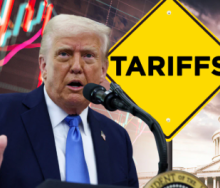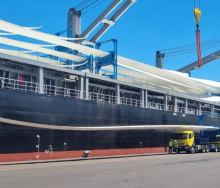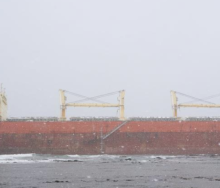The Minerals Council South Africa has raised concern that US President Donald Trump’s reciprocal import tariffs will damage global economic growth and lead to lower demand for the country’s minerals.
Most of South Africa’s minerals and metals sold to the US are excluded from the tariffs, but there are some, like iron ore and diamonds, which will be subject to the 30% reciprocal tariff. Trump pronounced on South African imports on Wednesday.
Minerals Council chief economist Hugo Pienaar said that while platinum group metals (PGMs) – coal, gold, manganese and chrome – had been excluded from the tariffs, global growth coming under threat was “bad news” for the mining sector.
“Despite the exclusions, we remain concerned about the adverse impact on business and consumer sentiment and the resultant feedthrough to business investment, consumer spending and ultimately global real GDP growth caused by this unprecedented upheaval in world trade,” Pienaar said.
“Even though PGMs are excluded from the latest round of tariff increases, vehicle prices in the US will increase because of the 25% tariff the Trump administration has imposed on all vehicle imports. Not only will this slow demand for automobiles in the US, but carmakers in other countries are likely to moderate production as a result,” he said.
Platinum, palladium and rhodium are used to make autocatalysts for vehicle exhausts to scrub out pollutants. If car and truck sales slow, demand for PGMs will reduce and result in volatile near-term prices. However, the council remains positive about the outlook for PGM demand and prices in the long term.
“With respect to PGMs, there is an opportunity for increased market development given the potential that remains with internal combustion engines, the green hydrogen economy and jewellery, as well as other yet-to-be-developed technological applications that our members are driving through research. South Africa is the world’s leading source of PGMs, manganese, chrome and vanadium, which are all critical as energy metals,” said the council’s CEO, Mzila Mthenjane.
On a positive note, the council said the mining industry provided some shield to the South African economy in these challenging times.
This was in the form of the gold price, which remains firmly above $3 000 an ounce, or about R1.8 million per kilogram, with investor and central bank demand for gold rising during these uncertain economic times
Another silver lining for mining is that the global uncertainties and renewed concerns about the Government of National Unity have weakened the rand against the dollar. If sustained and not accompanied by notable domestic cost increases, the weaker rand should increase the competitiveness of South African minerals and other exports.
Table 1: South Africa’s mineral exports to the US
|
Top 10 Mineral Products and Precious Metals Exports to the US in 2024 |
Rand Value of Exports to the US in 2024 (Rand billion) |
Exempt from US tariffs |
|
Platinum group metals (PGMs) |
49.8 |
Yes |
|
Precious metal jewellery |
3.0 |
No |
|
Granulated slag (slag sand) from the manufacture of iron or steel |
2.7
|
No |
|
Coal |
2.0 |
Yes |
|
Diamonds, whether or not worked, but not mounted or set |
1.5 |
No |
|
Niobium, tantalum, vanadium or zirconium ores and concentrates |
0.469
|
Yes |
|
Bullion |
0.360
|
Yes |
|
Chromium ores and concentrates |
0.203
|
Yes |
|
Iron ores and concentrates, including roasted iron pyrites |
0.183
|
No |
|
Manganese ores and concentrates |
0.162
|
Yes |
Source: SA Revenue Service customs data
Total South African exports of mineral products and precious metals to the United States amounted to R65.3 billion in 2024, with PGMs accounting for 76.3% of the total.













